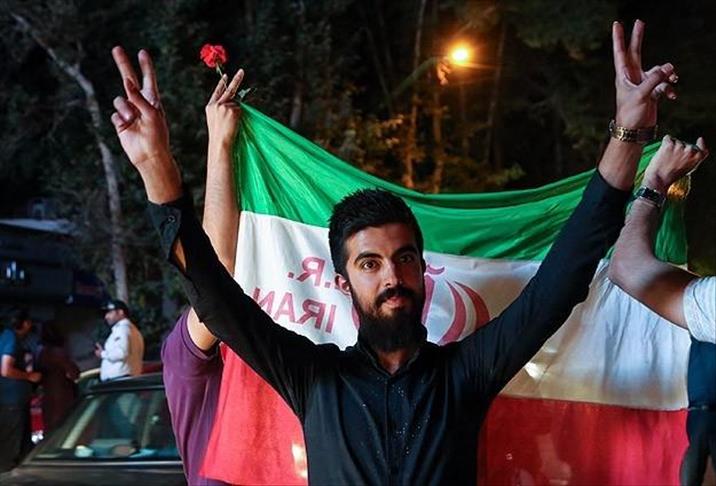
ANKARA
The nuclear agreement between Iran and the P5+1 group will not lead to peace between the two nations in the near future as the fate of deal remains uncertain and Iran’s stance on certain issues will not change immediately, a Turkish expert told Anadolu Agency.
Negotiators in the Austrian capital of Vienna signed a final agreement Tuesday, bringing to a close nearly two years of contentious talks that focused on providing Iran with dire needed sanctions relief in return for unprecedented curbs and inspections on its nuclear program.
“The implementation of the agreement was tied to certain dates. However, there will be problems at every step. Thus, Iran’s nuclear program will remain on [the forefront] of international politics,” says Bayram Sinkaya, an assistant professor in international relations at Ankara-based Yildirim Beyazit University, in an analysis written for Anadolu Agency.
The P5+1 group includes the countries of Un. Russia, China, the U.S., France, Germany and the U.K.
Sinkaya stressed that there were certain circles in Iran and in the West that have voiced their opposition to the deal.
“The opposition in the U.S. claims the deal does not halt Iran’s nuclear program and will pave the way for Iran to obtain nuclear arms in 10 years,” Sinkaya says.
Indeed, Republican presidential candidates were quick to condemn the deal.
“A comprehensive agreement should require Iran to verifiably abandon – not simply delay – its pursuit of a nuclear weapons capability,” said Jeb Bush, former governor of Florida.
Some Iranians have raised objections against the restrictions on the country’s nuclear program and the inspection of the military zones of the country as stipulated in the deal, according to Sinkaya.
“The Iranian parliament will discuss the deal. Iranian President Hassan Rouhani said one of the most important consequences of the deal is that it would fix a wrong image that Iran is a danger to the world’s peace and security. He added it would open a new page in its relations with the world,” Sinkaya notes.
Sinkaya does not share Rouhani’s optimistic view. “The deal does not mean fundamental and quick change of Iran’s foreign policy,” Sinkaya underlines, recalling Ayatollah Ali Khamenei’s remarks on the deal.
"Whether the nuclear agreement is approved or not, Iran will not stop supporting its friends in the region," Khamenei said on Saturday.
Additionally, the U.S. State Department still sees Iran as a country supporting terrorism.
“The agreement is not a grand deal or strategic cooperation between Iran and the P5+1 group. The fundamental feature of the deal is to solve conflicts regarding Iran’s nuclear program. That program is just one of the problems between Iran and the West,” Sinkaya maintains.
Despite this pessimistic picture, Sinkaya believes the nuclear deal will have an effect on Iran’s domestic politics which could change the nature of the country’s foreign policy.
“The implementation of the deal will strengthen Rouhani’s stance. With that, Iranian foreign policy would change,” said Sinkaya. The Iranian general election in 2016 will provide an indication on the evolution of Iranian politics, according to him.
“This change would revive economic relations between Iran and the West including the U.S.,” Sinkaya says.
Although Western powers have accused Tehran of supporting terrorism due to its relations with Hezbollah, some regard Iran as a potential partner in the fight against Daesh, according to Sinkaya.
Regarding the Syrian crisis, Sinkaya claims there could be a gradual change for Iran, adding though that, as long as the civil war continues in Syria, it remains difficult for Tehran to change its long-running policy to support the Damascus regime. Sinkaya stressed Iran’s relations with Hezbollah would not change.
Tehran however could change its stance on Yemen since its strategic interests do not remain too important unlike Syria, Lebanon or Iraq. “Iran would support a diplomatic solution for Yemen,” he claims.
Anadolu Agency website contains only a portion of the news stories offered to subscribers in the AA News Broadcasting System (HAS), and in summarized form. Please contact us for subscription options.

